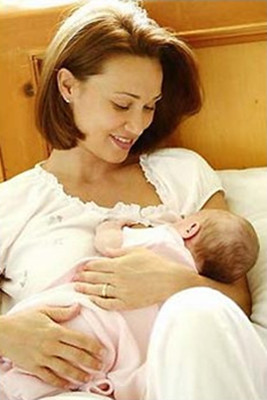(单词翻译:单击)
Our lifelong food preferences are largely shaped by the foods we're exposed to earlyon in childhood.
我们一生的食物偏好大多数取决于在童年时期接触到的食物。
This process begins before we even taste solid foods.
在我们接触固体食物以前,这个过程已经开始了。
If introduced early enough, we'll happily accept flavors that our own parents might turn their noses up at.
如果及早接触的话,我们可能会接受父母嗤之以鼻的口味。
For instance, there is an infant formula designed to aid digestion, which has abitter after taste that parents find unappealing.
比如,有一个帮助消化的婴儿配方食物,回味起来苦涩无比,家长们都不喜欢。
They assume that theirbabies couldn't possibly like it.
他们猜测自己的孩子可能也不喜欢。

If they wait until their babies are seven months old to introduce the formula, their assumption will probably be right.
如果直到孩子7个月大的时候,才给他们喂养这种食物的话,家长们的猜测也许是对的。
However, if they introduce the formula to the child within its first four months of life,the baby will accept the formula and continue to accept it.
但是,如果在孩子四个月大的时候,喂养这种食物的话,孩子就会接受并继续食用它。
So if a mother breastfeeds that mean that by eating vegetables, her baby will be exposed tothe flavors of vegetables through her breast milk.
因此,如果一个母亲在吃蔬菜的同时用母乳喂养孩子,她的孩子就会通过乳汁接触到蔬菜的味道。
If a mother eats a varied diet, then her breast milk can naturally introduce a widevariety of flavors to her baby early on.
假如一位母亲有多样化的饮食,她的母乳在婴儿早期就能介绍各种不同的口味给孩子。
And the wider variety of flavors children areexposed to, the more likely they are to eat a varied diet later on in life.
孩子接触到的口味越广,他们食用多样化食物的可能性就越大。


